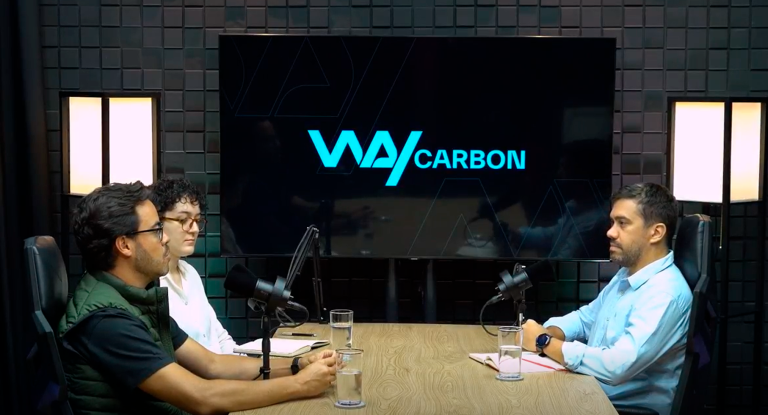Climate agenda trends in 2024

2023 was marked by major events in the field of sustainability, such as the launch of the International Financial Reporting Standards (IFRS), the approval of the Carbon Border Adjustment Mechanism (CBAM) by the European Union and the holding of COP28, in Dubai. But, what about for 2024, which points should be on companies’ radar? To understand what topics companies should pay attention to in relation to the climate agenda next year, we spoke to Higor Turcheto, Mitigation Manager at WayCarbon.
- From your perspective, what are the main themes on the decarbonization agenda that private companies should pay attention to in 2024?
Undoubtedly, organizations must maintain improvement actions in their process of monitoring and managing GHG emissions, aligned with a clear decarbonization process over a time horizon. And in this context, in addition to Scope 1 and 2 efforts, it is essential to map and monitor indirect emissions in the value chain (Scope 3), identifying, along with their suppliers, the main challenges and opportunities that exist, with the definition of an engagement plan, evaluation of synergies to reduce emissions and development of practical actions to mitigate indirect emissions.
As part of the commitments to reduce GHG emissions, aligned with the trajectory of limiting temperature to 1.5°C, organizations will increasingly be invited to demonstrate how the decarbonization strategy is reflected in the company’s governance and financial planning model.
Over the time horizon, organizations must demonstrate how they expect to meet short-term goals and what the planning is for actions on the long-term agenda – Net Zero. And in this sense, as there is still a technological gap that supports the emission reduction curve, in addition to the focus on initiatives already practiced by the market – such as purchasing energy certificates, light fleet electrification, process reductions and others – it is important to look at the need for research and development of new projects that meet business needs.
- Is there a deadline linked to the regulations and obligations that will begin this year? Or some new framework that is expected to be released next year?
There is no specific framework for the decarbonization agenda from a regulatory perspective. However, with the evolution of regulated markets, companies will be required to report their emission data related to the product, following the example of the European Union where the first product report referring to CBAM must continue with submission by 01/31/2024. From this perspective, the decarbonization agenda is a great opportunity for companies to gain greater competitiveness, with the possibility of offering products with a lower carbon intensity.
In addition, organizations that have aligned their GHG reduction ambitions with science-based targets, such as SBTi, must intensify the decarbonization agenda, and formalize the evolution of this topic through their sustainability reports.
- Scope 3 emissions are a major challenge for most companies. Is it possible to say that in the coming years they will be increasingly demanded by stakeholders? What is the reason for such emphasis?
Yes, this is a relevant area for designing a good decarbonization strategy and the market has increasingly encouraged companies to continue with this accounting.
From the perspective of a company striving for a science-based target, calculating value chain emissions (Scope 3) is a mandatory condition. According to the SBTi methodology, for a company to submit a target for approval, it will necessarily need to manage its indirect emissions.
Despite the complexity of monitoring this scope, value chain management generates a virtuous circle necessary for the emission reduction trajectory linked to limiting global warming to 1.5°C. Without the engagement of all sectors, it will be difficult to achieve the expected reduction levels. Furthermore, based on this analysis, it is possible to create synergy between client and supplier, promoting an environment of mutual benefits in the adoption of mitigation measures. In reality, it is observed that large companies, who are already involved in the climate agenda, tend to influence smaller companies to engage in the cause.
- What advice would you give to companies that want to move towards a low-carbon operation in 2024?
The first step on the decarbonization path is to clearly define the organization’s ambition, disclosing what the expectations for reducing emissions are – in the short and long term – and developing these goals within the strategic planning of the business, in order to reflect the financial growth and investment plans in mitigation projects.
Added to this, the operationalization of a decarbonization strategy, with excellence, requires dedication and involvement from senior leadership, which can support decision-making on the agenda through the definition of a governance model that advocates transversal responsibility between all areas of business and prioritizes investments.
 EN
EN  ES
ES PT
PT





